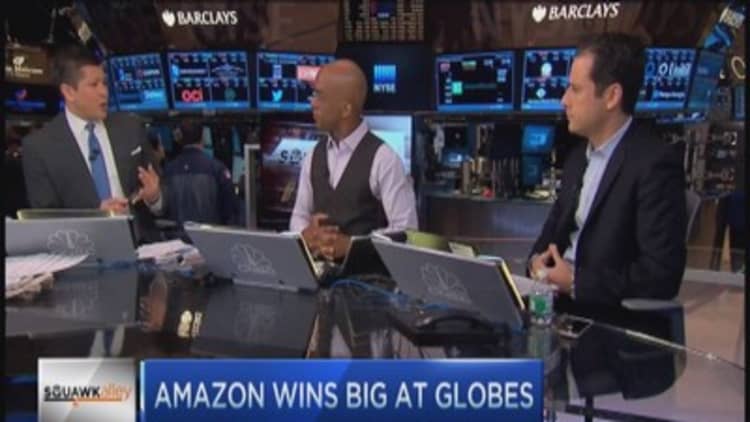Hulu on Wednesday announced that it was acquiring rights to air "Seinfeld" reruns at a cost ranging between $700,000 and $1 million according to various reports. The series had 180 episodes, so that would be the total pricetag between $125 million and $180 million. Even at the lowest end, it's a not a cheap deal.
Earlier in April, there was a big ruckus in the media about the death of reruns on television. Or, as many TV CEOs politely refer to it: "syndication." A lot of the buzz started after The Wall Street Journal published an article claiming reruns aren't good business anymore. This led to a lot of debate within the TV industry about the value—and cost—of reruns, ahem, syndicated programming.
The main argument in the pro-rerun camp is that reruns are DVR-proof. Even if they had lower ratings than new prime time shows, reruns are unique in that viewers generally don't go out of their way to record them. So anyone who's watching a rerun is almost certainly watching it live, leaving them unable to fast-forward past the commercials.
All of this goes a long way to explain why it wasn't such a bad deal when in 2010 TBS paid a reported $1.6 million per episode for reruns of The Big Bang Theory.
The majority of viewership for Big Bang this season—55 percent—came in the seven days after it first aired, according to Nielsen data provided to CNBC by Horizon Media, a privately held media services agency. But that same show in syndication was effectively never recorded—only 6 percent of the rating came in the seven days following. That means 94 percent of the nearly four million adults who watched the show saw it live, ads and all.
"Syndicated shows are less likely to be time-shifted because many of them run every day," said Brad Adgate, research director at Horizon, using an industry term for DVRing a show and watching it later.
A second argument is around the profitability of reruns. Just because Viacom and some other companies had to cancel certain programs or else take monetary write-downs, that might just be because those firms overpaid for the product.
Think of it like Moneyball—some sports teams are smart about the prices they pay for certain players, and they are able to win more games because of their diligence in scouting. Contrast that with other teams that overpay for big-name players who don't pan out, causing the team to lose more than they projected.
Read MoreNBA stat guru on future of analytics
In the sports analogy, if a few teams overpaid for bad assets, that doesn't mean that all teams and all players are bad.
The "Moneyball" of syndicated shows
It's the same with syndicated shows: Some channels are more effective than others, and just because certain networks paid top-shelf prices for subpar programs, that doesn't mean we've reached the end of reruns. It could just be a few bad decisions at certain companies.
The executives who spoke with CNBC suggested that the entire television business cannot sustain itself without repeatable syndication, as there are not enough hours of original content to fill the whole day. Additionally, there's the fact that so many originals fail, while many syndicated shows remain on-air because they've been successful for years.
These media CEOs asked to remain anonymous because it's not in their interest to say that reruns are still a good profit center. If they did that, it would suggest that they should pay higher prices to buy the programs they have in syndication, a trend they do not want to help.



